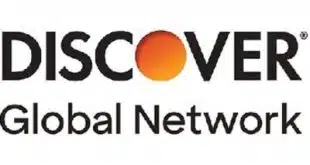MoneyGram International Inc.'s deal with Cardtronics Inc. to process remittances and bill payments on more than 2,000 sophisticated kiosks Cardtronics operates in 7-Eleven Inc. convenience stores may extend MoneyGram's reach, but at least one observer questions whether the service will get the traffic the Minneapolis-based money-transfer company is expecting. “I don't think those machines have proven themselves to drive a lot of transactions,” says Gwenn Bezard, research director at Aite Group LLC, a Boston-based research firm. Building volume, he says, “is going to be a steep, uphill battle.” In the agreement, announced on Monday, MoneyGram will process transactions, including expedited payments, on some 2,250 machines owned by Cardtronics, the country's largest non-bank ATM operator, starting later this year. The so-called advanced-function kiosks, called Vcoms, were once owned by 7-Eleven but the c-store giant sold them, along with its entire ATM fleet, to Cardtronics in 2007 for $135 million (Digital Transactions News, June 6, 2007). These devices are in approximately half of 7-Eleven's U.S. outlets, according to MoneyGram. The machines are capable not only of conventional ATM transactions but also of imaging check deposits, cashing checks, and processing money transfers. About half of the Vcoms can accept cash for bill payments. But the non-ATM functions have not attracted enough usage to generate profits for Cardtronics. The Houston-based company reported in August that, though the Vcoms are still unprofitable, their losses are narrowing. Indeed, it said the machines as ATMs make money, and it was focusing on redeploying some machines to improve their non-ATM performance. Overall, the losses on the Vcoms dropped from $10 million on an annualized basis in August 2007 to $1.3 million annualized in the first quarter to $600,000 in the second quarter. Cardtronics said in August it expected the kiosks to start generating a small profit in the first or second quarter of 2009 (Digital Transactions News, Aug. 12). MoneyGram executives say the company took the Vcoms' performance into consideration. “We've had in-depth discussions with Cardtronics around marketing and how to attract foot traffic and what we should expect from a volume perspective,” says Rick Byrne, vice president for strategic accounts at MoneyGram. With the multiyear agreement, MoneyGram is hoping to reach an urban audience looking for a quick and convenient way to send money and pay last-minute bills. The Vcom's “footprint is very good,” says Byrne. “It's important to us to have a broad network and choices for how [customers] want to interact with us. The big thing that drives consumer behavior is the perception of convenience.” Deployed in some 20 metropolitan areas, the Vcoms will allow walk-up customers to perform MoneyGram money-transfer and expedited transactions without the need to interact with store personnel. The MoneyGram service will start out on machines in Arizona, California, Colorado, Delaware, Florida, Maryland, Oregon, Pennsylvania, Texas, Utah, Virginia, and Washington. Meanwhile, according to the announcement, Cardtronics is looking for the arrangement to add value to the non-ATM functions on its Vcom fleet. A Cardtronics spokesperson did not return calls from Digital Transactions News seeking comment on the deal. But Aite's Bezard says the machines are an expensive alternative competing with thousands of walk-up bill-pay storefronts where consumers can perform the same transactions with the help of store clerks. “You're competing with tons of locations that are manned locations,” he notes. “People are willing to use devices, it's just that you have an overwhelming supply of manned locations. Why go through the process of learning a new process?” Bezard estimates the number of walk-up bill-pay and money-transfer locations at “well over 100,000.” He adds that the Vcoms, by contrast, require maintenance, with little prospect of any significant increase in number. “It's hard to scale,” he says. “There's kind of a ceiling [at 2,250].” Still, the machines' narrowing losses may indicate they're finally gaining traction with users. Even Bezard concedes “Cardtronics may have a plan to drive traffic. They may be able to make some money with it, but it's going to be tough.” For his part, Byrne says the kiosks add to customers' range of choices. “We've got everything from MoneyGram online to c-stores to kiosks,” he says. “Our customers just want to have a broad variety of choices for whatever fits their lifestyle and whatever's convenient for them.” At the same time, the kiosks prompt customers to pick up a phone to speak to a MoneyGram representative, who helps guide them through the transaction, Byrne says. Consumer fees for expedited bill payments, which usually post the same day, will range from $2.95 to $9.95 each, depending on the arrangement with the biller, Byrne says.
Check Also
Celero Marks Another Acquisition and other Digital Transactions News briefs from 11/15/24
Payments provider Celero Commerce acquired Precision Payments. Celero said its total annual North America card processing volume …



